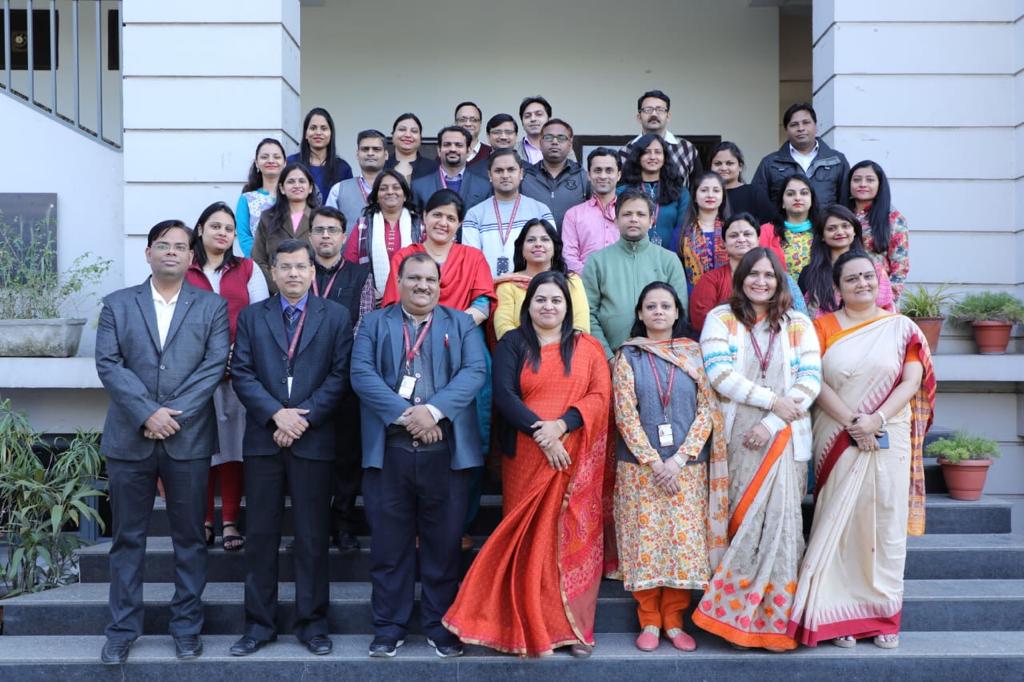About- ASH Department
VISION
The department of ASH has a distinct vision to nurture and inculcate knowledge and understanding of engineering sciences amongst the budding technocrats and groom the students with intellectual and professional strength. ASH is an anvil to chisel future professionals with the skills of engineering, imbibed with social, ethical and moral values, so that the pupils can expedite their efforts to build technologies from knowledge and be a part of the workforce, instrumental in the development of the nation’s technological and economic progress.
MISSION
- To play a pivotal role in laying the foundations of engineering education by building the professional strengths of the students in basic sciences & engineering disciplines and strengthening the foundation of aspiring engineers.
- To provide a unique learning environment for the students, preparing the students at par with the global technical workforce, building confidence, character and human values.
- To upgrade the quality of technical education and produce dynamic engineers and entrepreneurs for the country, with a sole aim to spot ABESEC amongst the best educational institutions of global standards.

Team ASH
Programme Outcomes (POs)
| PO 1: Engineering knowledge: Apply the knowledge of mathematics, science, engineering fundamentals, and an engineering specialization to the solution of complex engineering problems. |
| PO 2: Problem analysis: Identify, formulate, review research literature, and analyze complex engineering problems reaching substantiated conclusions using first principles of mathematics, natural sciences, and engineering sciences. |
| PO 3: Design/development of solutions: Design solutions for complex engineering problems and design system components or processes that meet the specified needs with appropriate consideration for the public health and safety, and the cultural, societal, and environmental considerations. |
| PO 4: Conduct investigations of complex problems: Use research-based knowledge and research methods including design of experiments, analysis and interpretation of data, and synthesis of the information to provide valid conclusions. |
| PO 5: Modern tool usage: Create, select, and apply appropriate techniques, resources, and modern engineering and IT tools including prediction and modeling to complex engineering activities with an understanding of the limitations. |
| PO 6: The engineer and society: Apply reasoning informed by the contextual knowledge to assess societal, health, safety, legal and cultural issues and the consequent responsibilities relevant to the professional engineering practice. |
| PO 7: Environment and sustainability: Understand the impact of the professional engineering solutions in societal and environmental contexts, and demonstrate the knowledge of, and need for sustainable development. |
| PO 8: Ethics: Apply ethical principles and commit to professional ethics and responsibilities and norms of the engineering practice. |
| PO 9: Individual and team work: Function effectively as an individual, and as a member or leader in diverse teams, and in multidisciplinary settings. |
| PO 10: Communication: Communicate effectively on complex engineering activities with the engineering community and with society at large, such as, being able to comprehend and write effective reports and design documentation, make effective presentations, and give and receive clear instructions. |
| PO 11: Project management and Finance: Demonstrate knowledge and understanding of the engineering and management principles and apply these to one’s own work, as a member and leader in a team, to manage projects and in multidisciplinary environments. |
| PO 12: Life-long learning: Recognize the need for, and have the preparation and ability to engage in independent and life-long learning in the broadest context of technological change. |





